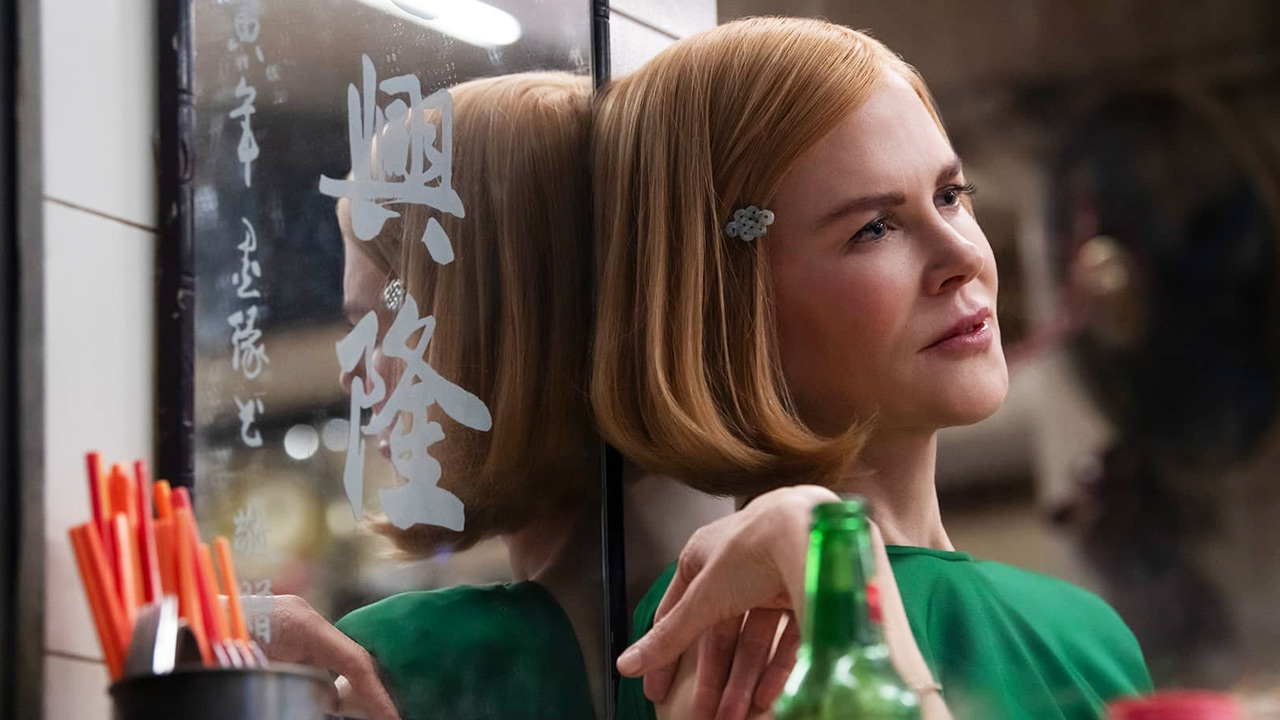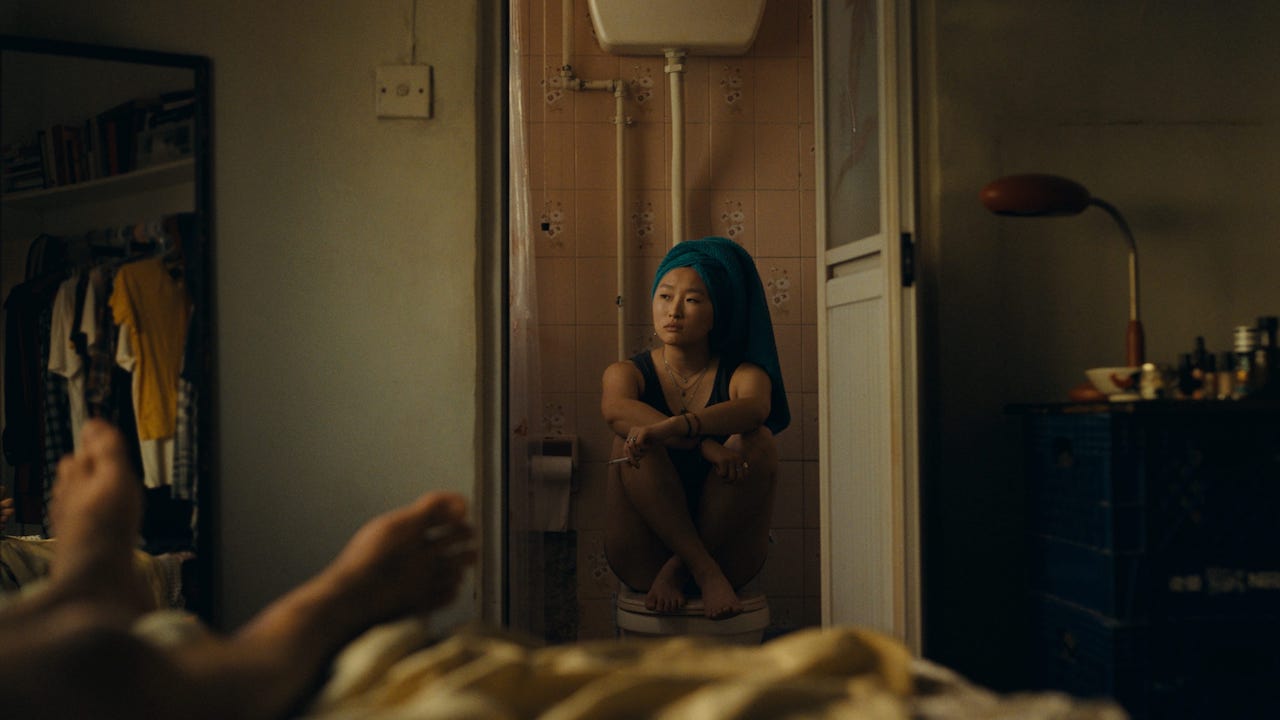Expats is another decently made series that could’ve been half as long
The director of The Farewell helms this not-so-mini miniseries—some episodes stretch languidly to feature-length.

Hong Kong is a heavy-hearted purgatory in Expats, a novel adaptation from The Farewell director Lulu Wang. Luke Buckmaster praises the excellent performances and sense of mystery—but says the runtime is too “long and loose”.
Expats begins after the fact—in the wake of a key dramatic moment that’s cast a long shadow over the characters’ lives, tinging them in darkness. We know, soon after we start watching, that an important threshold has already been crossed, past which things can never be the same, triggering the obvious question: what happened? The first episode of this well-acted but overlong and structurally rambling series, adapting Janice Y. K. Lee’s novel The Expatriates, puts that question in highlighter pen as it introduces Nicole Kidman’s Margaret—a well-heeled American expat living in Hong Kong with her husband Clarke (Brian Tee) and three children.
In the midst of organising Clarke’s 50th birthday party, Margaret awkwardly interacts with another wealthy foreiner in her apartment building—Sarayu Blue’s Hilary—and is unable to complete the sentence, “I know things have been a bit…” Later, at the party, one attendee says “if anything like that happened to me, I’d kill myself.” Clarke comes close to acknowledging an elephant in the room during his speech: “maybe it feels strange for us to be even having a party.” At least half a dozen other lines are, similarly, more like ellipses than statements, building anticipation for the reveal of a traumatic event and reminding us we’ve been inserted in media res, well after the drama’s arc has already started to bend.
We didn’t need creator, director and co-writer Lulu Wang to deploy that technique so many times: we geddit, we geddit. But it’d be wrong to describe the scripting (from herself, Lee, Alice Bell, Vera Miao, and Gursimran Sandhu) as laboured and unsubtle: in fact it’s quite sensitively crafted, and doesn’t adhere to conventional beats. The aforementioned preliminary mystery (revealed by the end of episode one) is coupled with a revelation conferred in the very first scene, comprising a series of photographs accompanied by a voice-over commenting on various people’s lives—or deaths, as the case may be.
The narrator, Ji-young Yoo’s Mercy, recounts a series of terrible accidents, noting how “these stories always focus on the victim” while “the person responsible for the calamity is never mentioned.” Mercy wants “to know about the perpetrators…the people who caused the tragedies.” Then comes the kicker, chased by visions of Mercy on a busy city street, turning to face the camera: “people like me.” The subsequent series combines slow reveals with the gradual chiseling and shaping of its characters, Mercy for instance beginning as a vaguely rendered personality, softly mysterious, with a guarded demeanour skillfully steered by Ji-young Yoo into vivid multi-dimensionality.
Kidman (also an executive producer) is guarded also, but in a more fragile and startled way, lots of vacant looks and thousand-yard stares. The point lingers, between lines, between breaths, that Margaret’s melancholia is connected to feeling that she doesn’t belong, viewing Hong Kong as a kind of purgatory: no future for her here.
Wang, whose best-known work is her 2019 film The Farewell, also uses a melancholic aesthetic to evoke that feeling. Expats is one of those productions that also feels like it’s always raining, or about to rain, even when the weather’s fine. This suits Hong Kong: an often unfriendly-looking place (I visited last year, so this observation is not entirely drawn from the show) that feels battered, tattered, and intensively lived-in, with lots of degraded textures. It’s a place doesn’t put on any airs, doesn’t care if you like it. A more uplifting story of course could’ve been told with a brighter aesthetic—as, in fact, aspects of the perkier final episode (no spoilers) briefly demonstrate.

Across the series, tension comes and goes—sometimes, at its peak, with an aching and swelling feeling, too much inflammation for the characters’ various wounds to heal. The rise of single arc series in recent times has led to lots of great television, but also plenty of shows—like this—that are too long and loose, lacking rigour. The fifth episode alone is movie-length: 95 minutes of drama that’s well-staged but, by that point, exhausting, and too prepared to coast along on the strength of the (universally impressive) performances.
That final episode not only drags, but adds last-minute changes to the show’s tone and visuality, which don’t sit right with the rest of the package. By the end it felt like the show’s heavy-heartedness had rubbed off on me—which, I suppose, could also be interpreted as speaking to its strengths. As a portrait of the expatriate experience in Hong Kong, Wang et al nail that sense of not belonging, and other feelings that come with it: bodies in one place, minds in another; the past inaccessible, the future never what it’s supposed to be.























